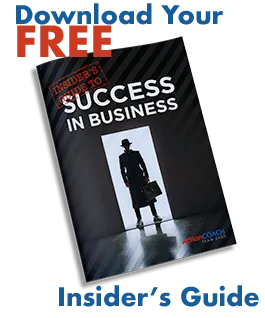OUR BLOG
"When You Believe in Your Vision and Dreams,
They Attract the Necessary Resources to Realize Them"
- Jody Johnson

5 Essential Tips for Effective Cash Flow Management
Transcription:
Are you a small business owner looking for ways to manage your cashflow and improve your local business success? In this video, you'll unveil how to forecast income and expenses, budget for short-term goals, stay up to date with changes in tax laws, and more! Stay tuned! Managing your cash flow can be overwhelming and challenging as a small business owner.
You know that it's important to track income and expenses, budget for short-term goals, and stay up to date with changes in tax laws, but you don't know where or how to start.
Don't worry! In this video, I'm sharing five essential tips that every small business owner should know about effective cashflow management to improve their local business success. By the end of this video, you'll have a better understanding of how to manage your cashflow for greater success!
Let's get started! Now, I know there are a lot of people out there who think cashflow management is complex. But I'm here to tell you it doesn't have to be! So let's get to into my five tips... Tip number one is to create a budget, or I prefer to call it a financial forecast, since "budget" is French for "small purse," and I'm not interested in limiting my finances.
This helps you keep track of your income and expenses and ensure you're staying true to your goals and forecasts. In a larger organization, you also use the budget, and I'm purposely using that word here to give different department heads a guideline for their spending. In our small businesses, we can also use it to do our "what if" forecasting to see our goals' effect on our cashflow.
Creating a financial plan is an essential part of managing your cashflow. The financial plan will help you track your income and expenses, identify areas where you can save money, and let you see how well you are doing with respect to your financial goals. It's essential to create both short-term and long-term financial goals for your business and yourself so that you know how much money you need to set aside each month or a year.
Tip number two is to create a cashflow forecast. A cashflow forecast is like having a crystal ball telling you how much money you need weekly or monthly to cover all your expenses or how much excess you have to support growth or unexpected expenses. When creating a cashflow forecast, it's essential to be realistic about how much money is coming in or and going out. This will ensure that you can meet all your financial obligations without overspending or being unable to pay bills.
Additionally, if you plan far enough ahead, you may even be able to take advantage of certain tax benefits throughout the year. When you create the Financial Plan, you want to include all the income and expenses associated with your financial goals. However, when creating your cashflow forecast, you only include the income and expenses you know are coming in or going out.
We always say that you want the cashflow forecast to reflect what is actually happening in the bank, so we create it from what the bank says, although you still wanna categorize things to make it easier to see where income and expenses come from. Tip number three is to use accounting software to track your income and expenses. This will help you see where your money is going, so you can make informed decisions about where to allocate resources. Tracking your income and accounting software gives you a much more refined way to know exactly where your money comes from.
Also, if you can use the invoicing feature, it can let you know who owes you what and for how long. This is super important to keep you on top of your cashflow coming in when expected. Using accounting software for tracking your expenses is an integral part of cashflow management and can help you identify areas where you're spending too much or not enough.
When tracking your expenses, you must categorize them into categories such as office supplies, utilities, payroll, taxes, marketing costs and more. This will give you an overview of where your money is going and help you identify potential areas for cost savings. Tracking your expenses will help you stay organized and reduce the risk of overspending or missing essential payments. Make sure to review all your accounting reports regularly so that you have an accurate understanding of where you stand financially each month.
Tip number four is to establish a line of credit. This can help you with cashflow issues, so you don't have to worry about running out of money. Establishing a line of credit can be a great solution to cashflow issues. A line of credit allows you to access money when you need it without applying for a loan and going through the lengthy approval process. It's also an effective way to manage short-term cashflow issues, such as unexpected expenses or seasonal fluctuations in revenue.
When establishing a line of credit, it's essential to research different banks and lenders and find one that offers competitive rates and flexible repayment terms. Additionally, you should ensure you understand all the fees associated with opening and maintaining a line of credit. You also want to ensure that you'll be able to pay back the money on time so your credit score isn't negatively effective.
Finally, if possible, consider setting up automatic payments so that you don't forget or fall behind on payments. With these tips in mind, establishing a line of credit can be an effective and convenient way to manage your cashflow issues! It's also important to understand that business and personal credit scores are different, so you want to be sure that you are building business credit and using your business credit to obtain the line of credit, not a personal guarantee.
Finally, tip number five is to make sure you're getting paid on time. Late payments can greatly impact your cash flow, so make sure you're getting paid on time. The key to making sure you're getting paid on time is to stay organized and keep track of when payments are due. Ensure you always send out invoices promptly and follow up if necessary.
Consider setting up automated reminders for customers with outstanding invoices or even offering discounts for early payments. Additionally, ensure you understand all the policies and procedures regarding late payments, what and how you can charge for them, and how they affect your cash flow. Always opt for requiring payment upfront if possible for your business and customers. Many times, this is your own choice, regardless of what the industry norm is.
You should also consider offering multiple payment options for customers. This can make it easier for them to pay on time, allowing them to use credit cards or set up direct deposits or automated payments. Finally, it's crucial to stay up-to-date with changes in tax laws so you know how much money you need to set aside each month or year.
With these tips in mind, you'll be able to ensure that your cashflow is always positive! I'm feeling generous today. Would it be okay with me taking a little longer on this video and giving you a few more tips? Of course, you don't actually get a choice other than to stop watching, so since you're still watching, I'll take that as a Yes, please. I'd like some more!
Here are some other tips. One, automate your invoicing and payments. Automating invoicing and payments can be accomplished in your accounting software, your CRM (Customer Relationship Management) software, or other software systems. Streamlining the process can improve your efficiency and ensure that all customer payments are up-to-date and accurate. There are a variety of software programs available that can help with this process.
Accounting software can help you manage your financials by tracking income and expenses, budgeting for short and long-term goals, creating invoices, and staying current with tax laws. It can also generate reports so that you have an accurate view of your finances at any time. Additionally, it can automate processes like sending out automated reminders for due dates or payment confirmations once the invoice is paid.
CRM software allows you to keep all the information about your customers and prospects in one place, making making it easy to keep track of follow-up tasks and customer interactions. Invoicing, software simplifies creating, managing, and tracking invoices for customers. It allows you to customize invoice templates to fit your business needs, setting up recurring invoices for clients who order regularly, and accept multiple types of payments, such as credit cards or direct deposits.
Additionally, it can provide real-time updates so that you know when an invoice has been opened or paid. By utilizing software to automate your invoicing and payment processes, you can stay organized and ensure that all customer payments are received on time. This will help improve your cashflow management and lead to tremendous success for your business! Number two. Stay organized and on top of your books.
Staying organized and on top of your books is essential for successful cash flow management. Keeping accurate records of all income, expenses, payments and invoices and customer information will help you stay up-to-date with your finances and ensure that you're collecting all the money due to you. Additionally, having a good understanding of your financials will allow you to make informed decisions about where to allocate resources.
Number three. Make sure to plan for taxes. Tax planning is an essential part of successful cash flow management. It's important to have a good understanding of the current tax laws and regulations in order to ensure that you are compliant with all filing requirements. Additionally, it's essential to plan for upcoming tax obligations so that you can prepare in advance and avoid any potential penalties or interest fees.
One way to plan ahead is by setting up a separate account specifically for taxes. You should deposit enough money into this account each month or quarter to cover your taxes when they're due. This will help keep your business finances organized and ensure you don't have any surprises when it comes time to pay your taxes. Additionally, setting aside money for taxes regularly can help reduce the stress associated with paying them and keep your cashflow more predictable.
It's also essential to stay up-to-date with changes in tax laws so that you know what deductions and credits may be available to you. This will enable you to maximize the benefits available and save money on your tax bill each year. Additionally, it's a good idea to consult with a qualified accountant or financial advisor before filing your taxes to receive all the deductions and credits you are entitled to.
With careful planning, understanding of current tax laws, and consultation with an expert, you can maximize the benefits available and manage your cashflow more effectively! Four, have a contingency plan in place. A contingency plan is an essential part of managing cash flow. It can help you manage unexpected expenses, prepare for potential risks, and secure your finances. The first step to creating a successful contingency plan is to to assess your business's potential risks.
This will enable you to identify any weak spots in your finances that could be vulnerable to unexpected expenses or risks. Additionally, this assessment will show you how much money you should set aside for the contingency fund. Once you have identified potential risks, it's important to research insurance policies that may benefit your business.
The right coverage can provide financial protection against losses due to natural disasters, theft, fire, and other unforeseen circumstances. Additionally, different types of insurance policies are available that can protect your business from liability claims or provide legal representation in case of a lawsuit. Five, take advantage of available resources like credit cards or grants. Credit cards or grants can be a safe way to manage your cash flow. Credit cards are an excellent tool for managing cash flow, as they offer short-term financing and allow you to spread payments over time.
Additionally, they may offer perks such as reward points or interest-free periods which can help you save money. It's important to remember to always stay on top of credit card payments in order to avoid costly late fees or penalties! Also, remember that if you are spreading your payments over time, you are paying an interest charge that could be significantly higher than that of a line of credit or other financial tools for managing cash cash flow.
It's not to say don't do it, just be aware of what you are doing and include the interest in your expense calculations. Grants are another potential source of funding that small business owners may be eligible for. Government grants are typically awarded based on specific criteria and can provide businesses with access to capital that would otherwise not be available. Additionally, many grant programs offer additional resources, such as mentoring or training opportunities which can provide valuable assistance in helping grow a successful business.
Businesses should be sure to take advantage of all available options when it comes to managing their cash flow. Utilizing credit cards and grants are just two examples of ways in which businesses can effectively manage their finances, but many other potential sources of funding should be explored. With careful planning and budgeting, any business can maximize the potential benefits from these resources and create greater success!
So there you have it, five essential tips plus five more for effective cashflow management. Now, if you want to learn even more about cashflow management, be sure to click the link in the description to register for the three dangerous pitfalls web class. This class will teach you all the ins and outs of cashflow management, so you can be sure you are setting yourself up for success.
I highly encourage everyone who watches this video to leave a comment below about their experiences with cashflow management. As an entrepreneur, consider sharing some of the successes and failures you've experienced with cash flow management. It could be as simple as how tracking income and expenses helped you better understand where your money was going or the importance of staying up-to-date on tax laws to avoid paying penalties.
Whatever it may be, sharing your stories can provide valuable information that other entrepreneurs can learn from. Thank you in advance for helping others by sharing your experiences!
Would you like to learn more about effective cashflow management or other topics regarding business success?
Yes!
Great! Then there are a few things that you need to do right now.
First, please like this video so I know you got value, and I'll make more videos like this one.
Second, subscribe to this channel, and click the bell to get notified whenever we post a new video so that you don't miss a single piece of the valuable information we share.
I'm Doug Barra. I believe it takes great courage to own a local, small business.
For the last six 16 years, I've ensured that business owners like yourself get the time, money, and freedom you deserve.
Click the link in the description to register for the three dangerous pitfalls web class.
This class will teach you all the ins and outs of cash flow management, so you can be sure you're setting yourself up for success.
Thanks for watching, and I'll see you next time!






Facebook
Instagram
X
LinkedIn
Youtube
TikTok